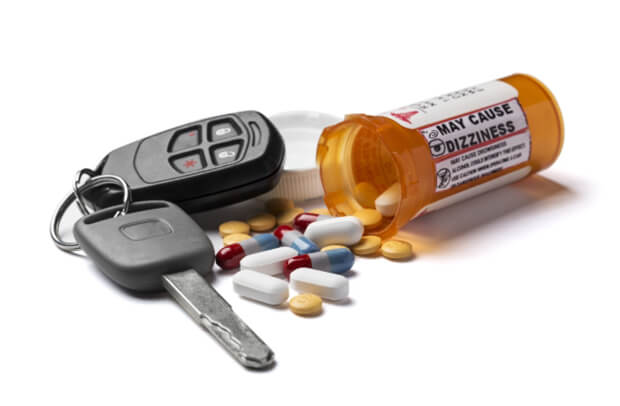Hay fever and driving WARNING: Common medication could see motorists face hefty punishment

Experts have revealed that there are certain common over-the-counter allergy medications such as antihistamines could have a detrimental affect on your driving.
As a result, hay fever sufferers could very well face prosecution for driving under the influence of legal drugs.
Many hay fever sufferers have to take these medications in order to alleviate their symptoms. These medicines can actually inhibit reaction times and even sight.
Many prescription and over-the-counter medications for hay fever, can have side-effects which drivers need to be aware off. Some of the main side-effects of these hay fever medications is drowsiness (55 per cent), feeling of lethargy (35 per cent) and blurred visions (35 per cent).
Data released in the UK has revealed that four per cent of motorists taking these types of medications, have actually had an accident as a result.
Our advice is simple, before taking any medication, you should always read the safety leaflet before driving. If you are unsure, seek the expert advice of your pharmacist or you may want to err on the side of caution and not drive at all until the effects of the medication wear off.
If any kind of medication affects your driving it could possibly lead to a drug driving offence? Also it could be said with regard to all roads policing matters which An Garda Síochána have a responsibility for, there may be no room for a guard's discretion to determine how severe a danger to the public or other roads users a person is.
The advice then is check the labels of any medication you may be taking. According to NHS.co.uk chlorphenamine and diphenhydramine are the tablets which are more likely to cause drowsiness. Tablets containing loratadine or cerititizine are less likely to cause you to feel drowsy, however, certain individuals body’s may react differently to the tablets.
If you take medications such as Feminax or Solpadeine regularly, you could fail a roadside drugs test if the Gardaí find that you are impaired in your driving.
You may need to be aware that both these drugs contain codeine, which is a drug detected by Gardaí during roadside drug tests.
Experts say that you could even be over the limit if you have taken the recommended dosage?
As with any medications, it is advised that you speak with your GP or Pharmacist for more advice and also be aware of the new legislation regarding drug impairment and driving.
(As always, if you or a family member are considering buying a used car, don’t buy until you run a car check report with MyVehicle.ie where you will find out the true history of the vehicle.)

Author

Justin Kavanagh
Justin Kavanagh is a recognised leader
in automotive intelligence and vehicle
data supply to the entire motor industry.
He has almost 20 years experience in
building systems from the ground up.
As the Managing Director of Vehicle
Management System, he understands the
need and importance of trustworthy and
reliable vehicle history and advice to
both the trade and the public.
Follow me on LinkedIn